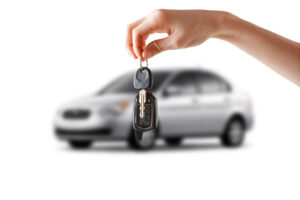
Buying a car can be a stressful and intimidating experience, especially if you’re not familiar with the process. Unfortunately, there are many scammers out there who prey on unsuspecting car buyers. These scams can cost you thousands of dollars and leave you with a lemon of a car. To avoid falling victim to these scams, here are some tips on how to spot and avoid them.
1. The Overpayment Scam

One common car buying scam is the overpayment scam. This scam involves a buyer sending you a check for more than the agreed-upon price of the car. They will then ask you to deposit the check and wire them the extra money. However, the check is fake, and you will be out the money you wired them.
To avoid this scam, never accept a check for more than the agreed-upon price of the car. If someone insists on sending you a check for more than the price, it’s likely a scam.
2. The Escrow Scam
Another common car buying scam is the escrow scam. This scam involves a seller telling you that they will use an escrow service to hold the money until the car is delivered. However, the escrow service is fake, and you will never receive the car or your money back.
To avoid this scam, only use reputable escrow services that you trust. Do your research and make sure the escrow service is legitimate before using it.
3. The Salvage Title Scam
Some scammers will try to sell you a car with a salvage title without disclosing it. A salvage title means that the car has been in a serious accident and has been deemed a total loss by the insurance company. These cars are often sold for a fraction of their value, but they can be dangerous to drive and expensive to repair.
To avoid this scam, always check the title of the car before buying it. If it has a salvage title, walk away.
4. The VIN Cloning Scam
Scammers will sometimes clone the VIN (vehicle identification number) of a stolen car and put it on a similar car that they are trying to sell. This makes the car appear to be legitimate, but it’s actually stolen.
To avoid this scam, always check the VIN of the car before buying it. You can do this by running a VIN check through a reputable service.
5. The Bait and Switch Scam
In this scam, a dealer will advertise a car at a great price, but when you get to the dealership, they will tell you that the car has already been sold. They will then try to sell you a more expensive car instead.
To avoid this scam, always call ahead and make sure the car is still available before going to the dealership. If they try to sell you a more expensive car, walk away.
Buying a car doesn’t have to be a stressful experience. By being aware of these common car buying scams, you can protect yourself and avoid falling victim to them. Always do your research, ask questions, and trust your instincts. If something seems too good to be true, it probably is.








